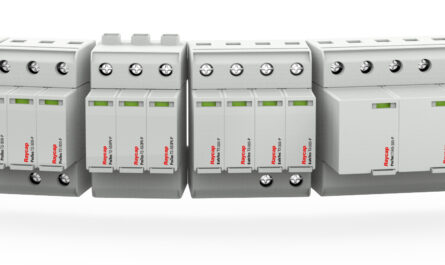A heat pump works similar to a refrigerator but in reverse – while a fridge transfers heat from the inside of the appliance to the outside, a heat pump moves heat from the outside air, ground, or water into a home. This allows heat pumps to effectively harness renewable heat energy from the outdoors in order to provide space heating and water heating for homes and buildings.
Types of Heat Pumps
There are different types of heat pumps that vary in their heat source. The most common types are:
Air-Source Heat Pumps
Air-source heat pumps (ASHPs) collect heat from the outside air and concentrate it for indoor use. They work much like a refrigerator or air conditioner by transferring heat between indoor and outdoor coils. During winter, the system functions in reverse by transferring heat into the home. ASHPs can efficiently extract heat from air temperatures as low as 5°F and use it to heat the home.
Ground-Source or Geothermal Heat Pumps
Ground-source Heat Pumps (GSHPs) take advantage of the stable underground temperatures to provide extremely efficient heating and cooling. They have underground piping loops buried in the ground several feet deep or they can connect to an underground water source such as a pond or lake. The piping exchanges heat with the ground through a basic refrigeration cycle. Since underground temperatures stay around 50-60°F year-round, GSHPs require much smaller temperature lifts and provide the highest efficiencies of any type of heat pump.
Water-Source Heat Pumps
Water-source heat pumps (WSHPs) connect to an open water source like a lake, reservoir, or even properly treated greywater systems. They work similarly to GSHPs, transferring heat between the indoor space and an outdoor water source instead of the ground. WSHPs usually require a large body of water within pumping distance of the home.
Ductless or Mini-Split Heat Pump Systems
Ductless or mini-split heat pumps are self-contained wall-mounted or ceiling-cassette units that don’t require ductwork. Each indoor unit has an outdoor compressor hooked up through refrigerant lines and can heat and cool one or multiple spaces. They provide zoned control and tend to be less expensive to install than ducted systems since they avoid ductwork costs. Mini-splits are a popular option for residential and light commercial applications.
Performance, Efficiency, and Cost Effectiveness of Heat Pumps
Heating Performance
Heat pumps start becoming more cost effective than other heating systems when outdoor temperatures are above around 20°F. Below this temperature, auxiliary heat is required to boost the system’s performance. Even in cold climates, efficient heat pumps with modern controls can provide the majority of winter heating needs. Some high-performance models deliver enhanced heating capacities down to 5°F or below without using backup heat.
Cooling Capabilities
For cooling, heat pumps are on par with standard air conditioners and provide dehumidification benefits as well. SEER (Seasonal Energy Efficiency Rating) ratings for heat pumps typically range from 15-30, which is even more efficient than gas furnaces or electric resistance heating.
Cost Effectiveness
The total cost of installing a heat pump depends on factors like efficiency rating, capacity, number of zones, and type of system. While upfront costs may be higher than a gas furnace, heat pumps offer significant long-term savings through their high efficiencies. When factoring utility bill reductions, federal tax credits, and lifetime operation expenses – heat pumps usually pay for themselves within 5-10 years through energy cost avoidance compared to less efficient systems. Maintenance costs are also lower.
Impact on Residential Energy Bills
Energy modeling shows homes can expect to cut their annual heating and cooling costs by 30-60% by switching to an air-source or ground-source heat pump from electric resistance or propane heating. Even in colder climates, the small amount of auxiliary resistance heat used in winter is outweighed by seasonal savings. For homeowners, this translates to a large reduction in energy expenses every month and year.
Environmental Benefits of Heat Pump Technology
Beyond financial savings, heat pumps also provide substantial environmental benefits compared to fossil fuel-based systems. Since heat pumps move rather than generate heat, they are a form of renewable energy that helps curb our reliance on oil, natural gas, and other polluting fuels. For every unit of electricity used to power the system, a heat pump can deliver up to four units of heating or cooling energy.
Additionally, the technologies have no combustion or flue gases, which avoids air quality and health impacts from other heating methods. Their high efficiency means each unit significantly reduces greenhouse gas emissions responsible for climate change. As more homeowners adopt heat pump technology, it can help communities, states, and the nation make meaningful progress in decreasing their carbon footprint and transitioning to a low-carbon economy.
Modern Control Systems and Smart Home Integration
Advanced Controls
Today’s heat pumps integrate user-friendly digital controls and automation. Programmable thermostats can be adjusted remotely with a smartphone app to save more energy. Some systems offer wireless zoning controls to optimize comfort in each room. Smart thermostats learn homeowner schedules and preferences to precondition indoor temperatures. This “set it and forget it” convenience further boosts efficiency and comfort.
Integration with Smart Home Technology
Heat pumps are also compatible with broader smart home ecosystems and work seamlessly with voice assistants, HVAC management hubs, and smart environmental sensors. HomeKit, Alexa, Google Assistant, and other controls allow centralized operation and integration with other systems like lighting, security, and appliances. Advanced diagnostics capabilities offer remote troubleshooting and maintenance alerts to technicians. The connectivity makes heat pumps a natural fit for smart, connected homes and buildings.
Summary
In conclusion, heat pumps have emerged as a highly efficient and cost-effective space and water heating solution. Not only do they provide the utmost comfort, but models today deliver large energy savings and help reduce environmental impacts. Modern controls and smart home connectivity further enhance convenience and performance. With a host of installation options and recent price reductions, heat pumps are a win-win upgrade for both homeowners’ wallets and the planet. Their advantages will continue attracting more widespread adoption as awareness grows.
Note:
1. Source: Coherent Market Insights, Public sources, Desk research
2. We have leveraged AI tools to mine information and compile it




